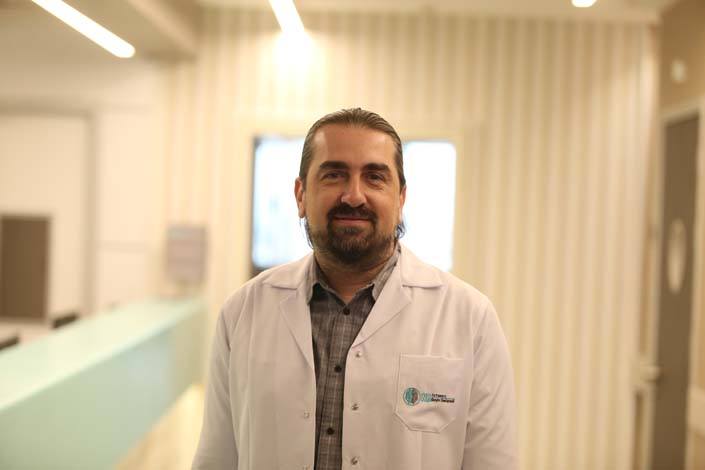Alzheimer's Disease
What is Alzheimer's Disease? Symptoms and Treatment
Alzheimer's disease is a common progressive neurological disorder that leads to the loss of brain cells. It causes a gradual decline in thinking, memory, and behavioral functions, and the symptoms become more apparent as individuals age. In the early stages, the disease may only manifest as mild forgetfulness, but in advanced stages, it can render a person dependent on care. Not every instance of forgetfulness is Alzheimer's, and there is currently no definitive treatment method available.
What is Alzheimer's Disease?
Alzheimer's disease, although often perceived as age-related and associated with old age, is actually a type of disease that can affect anyone. It is a brain disorder that leads to the destruction of cognitive abilities. It begins with minor instances of forgetfulness and gradually progresses to the inability to recall significant events. While it is normal for people to occasionally forget certain things, this condition is persistent in individuals with Alzheimer's disease. As the disease advances, the affected individual becomes unable to carry out daily activities independently and requires assistance from another person.
Most individuals with Alzheimer's disease experience a slow progression of symptoms. The symptoms may not be noticeable at first. Sometimes, it is only when family members reflect on the past that they become aware of when the symptoms began. Early diagnosis is significantly important for effective treatment. Medication therapy can be implemented by a specialist to treat the disease. This approach delays the advancement of the disease, maintains brain functionality, and somewhat slows down the possibility of becoming reliant on someone else.
What are the symptoms of Alzheimer's disease?
Firstly, the symptoms of Alzheimer's disease begin with forgetting minor details in the short term, and then progress to the continued forgetting of more permanent information such as names, addresses, and special occasions. In the later stages, the individual becomes unable to independently fulfill the requirements of daily life and becomes dependent on someone else, a caregiver. Some commonly observed symptoms of Alzheimer's include:
Impaired Memory and Thinking: The individual experiences difficulties in remembering and learning new things. In the advanced stages of the disease, long-term memory loss occurs, meaning the person cannot recall personal information such as birthplace, occupation, or the names of family members.
Loss of Orientation and Confusion: Individuals with Alzheimer's disease can become disoriented and have difficulty remembering their location or how they arrived there when they venture out on their own. They may struggle to recall familiar places and events. Additionally, they may have difficulty recognizing familiar faces, determining the time of day, or even remembering the current year.
Misplacing Objects: Individuals with Alzheimer's disease may forget where they have placed everyday items such as glasses, hearing aids, or keys. They may also put their belongings in unusual locations, such as placing their glasses in the refrigerator.
Impaired Abstract Thinking: Individuals with this condition may find certain tasks, such as balancing a bank account, more difficult than before. For example, they may forget the meaning of numbers and what they should do with them.
Difficulty in Performing Routine Tasks: Individuals with Alzheimer's disease begin to struggle with routine daily tasks such as eating, dressing, and taking care of personal hygiene. They also have difficulty in planning their daily activities.
Symptoms of Alzheimer's disease may go unnoticed by the affected individuals themselves, requiring close attention from their loved ones. Acknowledging the implications of the condition and seeking professional assistance are essential. Moreover, in the early stages of the disease, identifying its symptoms can be challenging. The individual experiences difficulties with memory, judgment, and thinking, which consequently impairs their ability to work and participate in daily activities. The gradual death of nerve cells occurs over the course of several years.
What are the types of Alzheimer's disease?
The types of Alzheimer's disease refer to the different categories that exist within the disease itself. These categories include early-onset, late-onset, and familial Alzheimer's disease.
Early-Onset Alzheimer's: Early-onset Alzheimer's is a rare form of the disease that starts before the age of 65. Individuals with Down syndrome are at risk of developing early-onset Alzheimer's due to their premature aging. Typically, the first symptoms are seen in their late 40s to early 50s. Brain abnormalities are observed in younger individuals with Alzheimer's.
Early-onset Alzheimer's is associated with a genetic error on chromosome 14, while late-onset Alzheimer's is not related to this. Myoclonus, the twitching or spasms of a muscle or group of muscles, is more commonly observed in individuals with early-onset Alzheimer's.
Late-Onset Alzheimer's: It is observed in nearly 90% of Alzheimer's patients and typically begins after the age of 65. It is seen in approximately half of individuals over the age of 85 and can be either hereditary or sporadic. Late-onset dementia is also known as sporadic Alzheimer's disease.
Familial Alzheimer's Disease: It is a purely genetic form of Alzheimer's disease that is present in at least two generations of a family. It is seen in approximately 1% of patients with this rare type of Alzheimer's. This form of Alzheimer's begins at a very early age (in the 40s) and clearly exhibits genetic characteristics.
How is Alzheimer's Diagnosis Made?
Since it is generally perceived as a condition related to forgetfulness and old age, Alzheimer's disease does not initially come to mind for individuals. Therefore, it is only possible to identify this disease in advanced stages. Forgetfulness worsens over time, and it becomes easier to detect the disease at this stage. In order to treat Alzheimer's, it is necessary to observe the patient for a long period of time and make an accurate diagnosis of the disease. Following the diagnosis, medication can be administered to slow down the progression of the disease and alleviate some of the severe symptoms.
How is Alzheimer's treated?
Alzheimer's (Alzheimers) treatment involves the use of different types of medications to address memory loss, behavioral changes, sleep problems, and other symptoms of Alzheimer's. These medications do not cure the disease, but they can slow down the progression of symptoms for several months or even years. All of these medications have notable side effects, particularly in older adults. Four drugs from two classes have been specifically approved for the treatment of this disease. Cholinesterase inhibitors are used for cognitive symptoms. They prevent the breakdown of a brain chemical called acetylcholine, which is important for learning, memory, and attention. It is difficult to determine which medication will work best for each individual.
While Alzheimer's is often diagnosed late, it is treatable. Early detection can yield positive results, but even with a late diagnosis, successful treatment is possible. Medication is recommended for the treatment of Alzheimer's patients. However, it should be noted that complete recovery may not be achieved through treatment. The focus is on slowing down the progression of symptoms and gradually helping the patient regain the ability to perform daily activities independently.
Patients should collaborate with their doctors to determine which treatment options are best for them. Alzheimer's therapy is limited and includes the treatment of behavioral and psychiatric symptoms associated with the disease, such as hallucinations, agitation, and sleep problems. However, additional medications can be prescribed as well.
Treatment aims to slow down the progression of symptoms and alleviate some of them. It is important to understand that not every instance of forgetfulness indicates Alzheimer's, and there is no definitive treatment method available.
To increase awareness about Alzheimer's, you can thoroughly review the test provided at the following link: https://npistanbul.com/alzheimer-testi
How long does an Alzheimer's patient live?
The symptoms of Alzheimer's disease can vary in duration and progression, and individuals can deteriorate over time. On average, a person with Alzheimer's disease can live for four to eight years after diagnosis, but depending on other factors, they can survive for up to 20 years.
How does Alzheimer's disease start?
The most significant and initial symptom of the disease is forgetfulness. A person with Alzheimer's disease experiences difficulty in remembering recent information, people, and events. Over time, the individual starts forgetting more and more.
How can Alzheimer's disease be treated?
There is no definitive cure for Alzheimer's disease. However, medication, symptomatic treatment, and behavioral therapy methods can contribute to reducing the problems that arise in the daily needs of individuals with Alzheimer's, such as dressing, eating, dental care, bathing, hygiene, and recognizing their loved ones.
What happens in the final stage of Alzheimer's?
In the final stage of Alzheimer's disease, individuals require care. They lose interest in their surroundings, experience difficulties in communicating, and are no longer able to perform physical actions independently.




